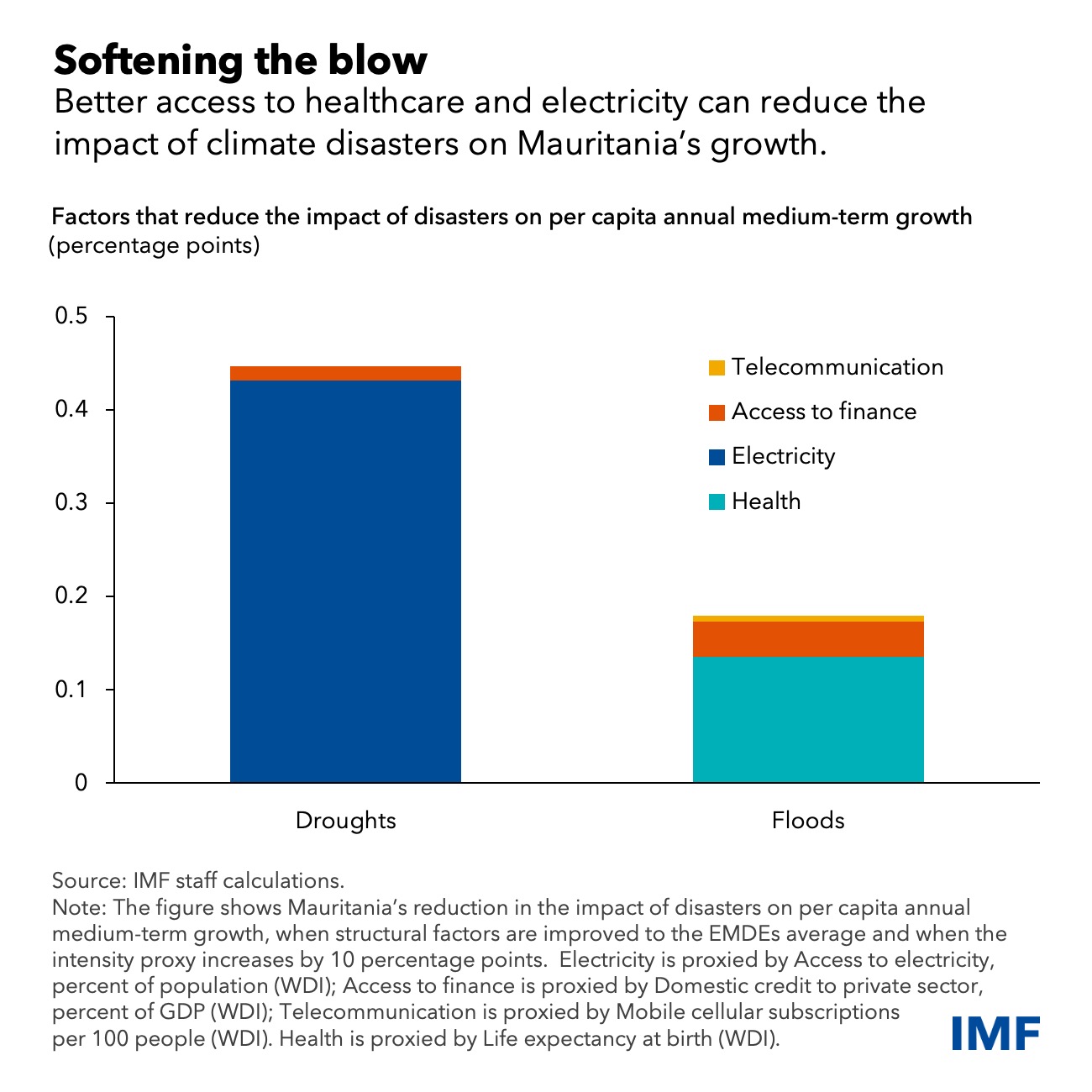Can Mauritania Reduce the Impact of Climate Disasters on its Economy
February 14, 2023
Improving access to healthcare and electricity can go a long way toward reducing the costs to growth from climate disasters
Climate-related natural disasters are becoming more frequent and severe in Mauritania, exacerbating long-standing challenges like land and infrastructure degradation, water stress, and food insecurity. After a severe drought in 2021, 20 percent of the population faced acute food insecurity—the highest level in the country’s history. Lower-income households and women were the most impacted, as they’re disproportionally reliant on natural resources.
The cost to Mauritania’s growth is significant as a result. Our research shows that on average Mauritania’s medium-term annual per capita growth could fall by around 0.8 to 1 percentage points if a drought intensifies by 10 percentage points. The rate of intense droughts is measured over 5-year windows, based on the impact on more than 0.01 percent of the population. If a flood intensifies by the same amount, the hit to medium-term growth would be around one-fifth to one-fourth of the drought-related effect on per capita growth.
However, these losses can be mitigated with improvements to healthcare and electricity, according to recent research. Expanding access to electricity for example can halve the economic losses caused by droughts. Electricity helps mitigate water shortages by powering irrigation systems and deep tube-well pumps. But only 47 percent of the population has access to electricity, and only about 5 percent in rural areas (according to 2020 data).
Most medium-term growth loss from floods could also be erased with improved health care. A better healthcare system would limit disease spread after floods and allow affected populations to return to work sooner. Better access to finance can also help offset the loss from droughts and floods by providing a financial buffer for families and businesses or by financing investments in disaster-resilient farming.
The government is working to expand its electricity supply and encourage investment in the renewable energy sector, with the aim of reaching universal access by 2030. It has also committed to universal health coverage by providing free healthcare to the poorest. Achieving progress with these initiatives could help reduce the impact of climate change.
****
Anta Ndoye is the IMF’s Resident Representative for the Islamic Republic of Mauritania.
Jarin Tasnim Nashin is a Research Assistant in the IMF’s Middle East and Central Asia Department.
Onur Ozlu is an Economist in the IMF’s Middle East and Central Asia Department.
Eric M. Pondi is an Economist in the IMF’s Strategy, Policy and Review Department.









